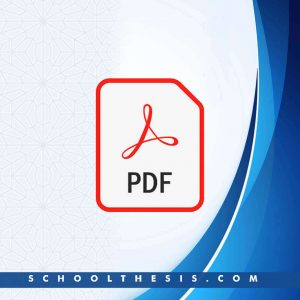
Qualitative Analysis of Factors Influencing Auditor Independence in Nigeria
Quick Navigation for Final Year Undergraduates, Masters (Thesis), and Ph.D. Dissertation Students Who Need Our Services on Their Research Works
| Find More Project Topics | FIND HERE |
| Hire Us for Thesis Works | HIRE NOW |
| Hire Us for Project Works | HIRE NOW |
| Hire Us for Seminar Works | HIRE NOW |
| Hire Us for Assignments | HIRE NOW |
| Hire Us for Proposals | HIRE NOW |
| Contact Us | HERE NOW |
Abstract on Qualitative Analysis of Factors Influencing Auditor Independence in Nigeria
This study examined the factors influencing auditor independence in Nigeria using qualitative approach. Primary data were employed for the study. A total of 350 copies of questionnaire were personally administered to Chief Accountants/Preparers of Financial Statement, Financial Analysts and Statutory auditors of listed companies in Nigeria using purposive sampling technique. Descriptive analysis such as mean, percentages, tables and graphs as well as Relative Importance/Significance Index (RII) and Mean Index Score (MIS) were employed in data analysis using a five-point likert scale. Results revealed that the factors influencing auditor independence most in Nigeria as perceived by the Financial analysts, preparers of financial report and statutory auditors were audit tenure with Relative Importance Index (RII) and Mean Index Score (MIS) of 0.77 and 3.84 respectively followed by audit fees (RII = 0.76 and MIS = 3.81). The other seven principal factors that garner majority opinion according to the ranking are provision of non-audit services (RII = 0.75, MIS = 3.74), Audited by the BIG4 (RII = 0.74 , MIS = 3.68), size of the firm (RII = 0.73, MIS = 3.67), level of competition in the audit market (RII = 0.73, MIS = 3.65), company’s audit committee (RII = 0.70, MIS = 3.51), security exchange commission’s enforcement process (RII = 0.70, MIS = 3.51) and profitability of the company (RII = 0.68, MIS = 3.42). The study concluded that audit tenure; audit fees; provision of non-audit services; audited by the BIG4; size of the firm and level of competition are the factors that can impair auditor independence in Nigeria.Audit fee, Auditor Independence, Audit tenure, Nigeria.
Chapter One of Qualitative Analysis of Factors Influencing Auditor Independence in Nigeria
INTRODUCTION
Auditor independence refers to the ability of the external auditor to act with integrity and impartiality during his/her auditing functions. According to the Indonesian Accounting Association (2010), auditor independence is an expected auditor behaviour that directs that an auditor does not have personal interest in doing his / her jobs, because it is contrary to integrity. Institute of Chartered Accountants of Nigeria (ICAN) (2013) also described auditor independence as comprising: (a) Independence of mind, that is, the state of mind that permits the provision of an opinion without being affected by influences that compromise professional judgment, allowing an individual to act with integrity and exercise objectivity and professional scepticism; and (b) Independence in appearance, that is, the avoidance of facts and circumstances that are so significant that a reasonable and informed third party, having knowledge of all relevant information, including any safeguards applied, would reasonably conclude a firm’s or a member of the assurance team’s integrity, objectivity or professional scepticism had been compromised.
With reference to Sarbanes Oxley Act (2002), independence is both a description of the relationship between auditor and client and the mindset with which the auditor must approach his or her work. The most general of the independence requirements in the auditing standards as provided in Paragraph 02 of AU section 150, Generally Accepted Auditing Standards states that “in all matters relating to the assignment, an independence in mental attitude is to be maintained by the auditor or auditors.” One measure of this mindset as spelt out in Paragraph 07 of AU section 230, Due Professional Care in the Performance of Work is the auditor’s ability to exercise “professional scepticism,” which is described as “an attitude that includes a questioning mind and a critical assessment of audit evidence.”
Auditor independence is believed to be determined by various factors including the provision of non-audit services, the size of the audit firm and the size of the client company, auditor tenure, Auditor/client relationship, the level of competition in the audit market while high risk of damage to auditor’s reputation, disciplinary action by the government, litigation against the auditor, disciplinary action by the professional association are associated with enhancement of auditor independence.
Disclaimer
This research material is intended for academic use only and should be used as a guide in constructing your research project and seminar presentation. You should never duplicate the content word for word (verbatim), as SCHOOLTHESIS.COM will not be held liable for anyone who does.
The purpose of publishing this material is to alleviate the stress of hopping from one school library to the next in search of research materials. This service is lawful because all educational institutions allow students to read past projects, papers, books, and articles while working on their own.
SCHOOL THESIS is merely giving this information as a research reference. Use the document as a reference or structure for your own research paper. This paper’s content should be able to assist you in coming up with new ideas and thoughts for your own study
Qualitative Analysis of Factors Influencing Auditor Independence in Nigeria research paper, should only be used as a guide.
